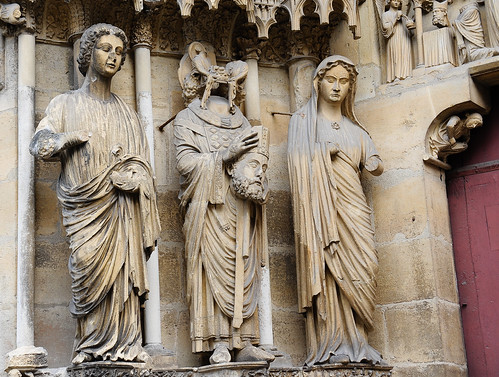“Remember, remember, the fifth of November, Gunpowder Treason and Plot.”
Tomorrow is Guy Fawkes Day, “observed in England to commemorate the foiling of the attempt led by Guy Fawkes in 1605 to blow up the king and members of Parliament in retaliation for increasing repression of Roman Catholics in England.”
In her post on autumnal holidays, Lynneguist says “the main autumn ritual in the UK is Guy Fawkes Night or Bonfire Night.” In Lewes, “a site of Protestant martyrdom,” Guy Fawkes Night is “huge,” often involving bonfires, fireworks, and parades (or “Mardi Gras with fire,” as Lynneguist puts it).

lewes bonfire night 2010 by http://heatherbuckley.co.uk, on Flickr
[Photo: CC BY 2.0 by heather buckley]
Guy Fawkes’ foiled attempt is also known as the Gunpowder Plot. The word plot originally referred to “a piece of ground; specifically, a small piece of ground of well-defined shape,” and comes from the Old English plot, “small piece of ground.” The meaning, “a stratagem or secret plan; a secret project; an intrigue; a conspiracy,” is from the 1580s, says the Online Etymology Dictionary, “probably by accidental similarity to complot,” meaning “a plotting together; a joint plot; a confederacy in some design; a conspiracy,” and may be a “back-formation from [the Old French] compeloter, ‘to roll into a ball.’”
A plot is also known as a conspiracy, “an agreement to perform together an illegal, wrongful, or subversive act.” The word conspiracy comes from the Latin conspirare, “to agree, unite, plot,” and which literally means “to breathe together.” Conspiracy theory, “a theory seeking to explain a disputed case or matter as a plot by a secret group or alliance rather than an individual or isolated act,” is attested to 1909.
A stratagem is “any artifice; a trick by which some advantage is intended to be obtained,” and comes from the Greek strategein, “to be a general, command,” which also gives us strategy and stratocracy, “a military government; government by force of arms.”
A subterfuge is “that to which a person resorts for escape or concealment; a shift; an evasion; artifice employed to escape censure or the force of an argument.” Subterfuge comes from the Latin subterfugere, “to evade, escape, flee by stealth,” with subter meaning “beneath, secretly” and fugere meaning “flee.” Fugere also gives us fugitive.
Intrigue is “secret or underhand plotting or scheming; the exertion of secret influence for the accomplishment of a purpose,” and comes from the Latin intrīcāre, “to entangle.” An intrigante is a female intriguer. Machination is the act of “contriving a scheme for executing some purpose, particularly a forbidden or an evil purpose; underhand plotting or contrivance.” The word ultimately comes from the Latin machina, “machine, engine, fabric, frame, device, trick,” which also gives us machine and the phrase deus ex machina, “an unexpected, artificial, or improbable character, device, or event introduced suddenly in a work of fiction or drama to resolve a situation or untangle a plot,” literally “the god from the machina,” with machina referring to “the device by which ‘gods’ were suspended over the stage in [Greek] theater.”
Treason is “violation of allegiance toward one’s country or sovereign, especially the betrayal of one’s country by waging war against it or by consciously and purposely acting to aid its enemies,” and comes from the Latin traditionem, “a handing over, delivery, surrender,” which also gives us tradition. High treason is “criminal disloyalty to one’s country,” while petit treason (petit is French for “small”) is “the crime of killing a person to whom the offender owed duty or subjection, as one’s husband, master, mistress, etc.,” and “is now not distinguished from murder.”
Perfidy is “deliberate breach of faith; calculated violation of trust; treachery.” The word perfidy comes from the Latin perfidus, “faithless,” which comes from the phrase per fidem decipere, “to deceive through trustingness,” where per means “through” and fidem means “faith.” Treachery comes from the Old French trichier, “to trick.”
A traitor is one who is guilty of treason, and comes from the Latin trādere, “to betray.” Some eponymous synonyms for traitor include Benedict Arnold, a general during the American Revolutionary War who later defected to the British; quisling (named for Vidkun Quisling, “head of Norway’s government during the Nazi occupation”); and Judas, “one of the twelve original Apostles of Jesus, known for his role in Jesus’ betrayal into the hands of Roman authorities.”
But Guy Fawkes Day gives us more than words about plot and treason. The word guy, an informal term for a “man or fellow” or “persons of either sex,” comes from Guy Fawkes himself. Guy earlier referred to “a person grotesque in dress, looks, or manners; a dowdy; a ‘fright,’” which came from the meaning of “a grotesque effigy intended to represent Guy Fawkes.” Around 1847, guy came to mean “a fellow.” The name Guy is French in origin and related to the Italian Guido, “leader.”
How about that mask? It was first made famous by the comic book series and film, V for Vendetta, and then taken up by the hacktivist group Anonymous. It can now also seen at Occupy protests all over the country.

Disobey by mediafury, on Flickr
[Photo: CC BY 2.0 by mediafury]






